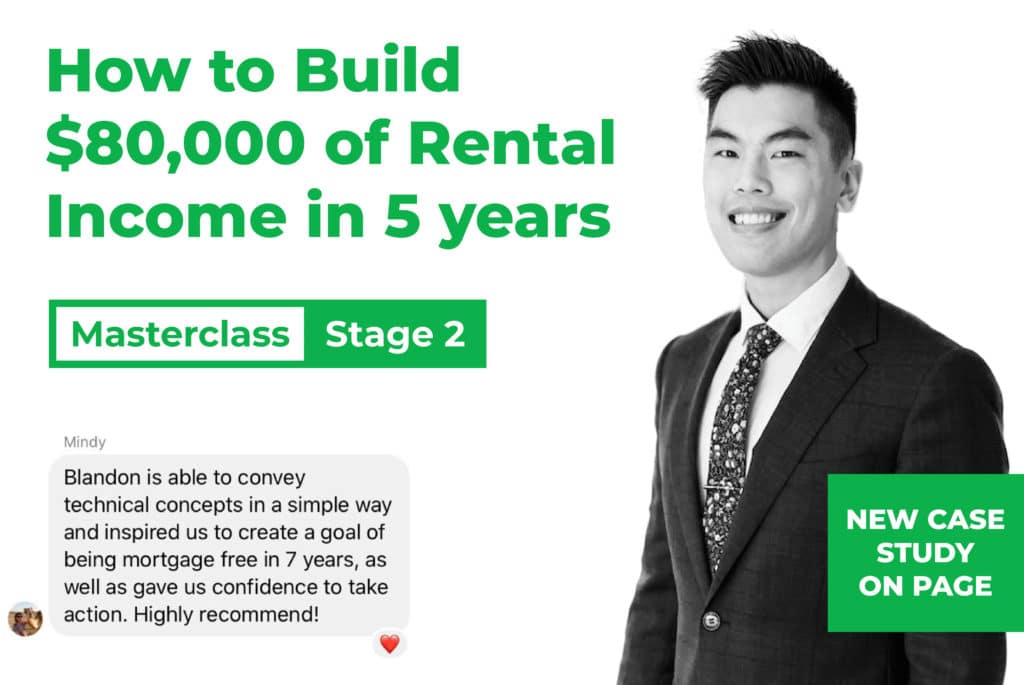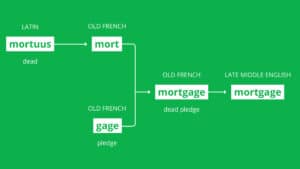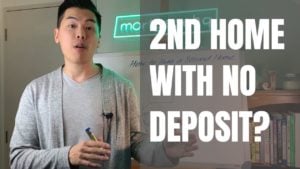Without a little education on the matter, you could find yourself spending $1,000s more in interest over the term of your mortgage. And you wondered why you were finding it really hard to get ahead?
Excuse the bias. There are different repayment structures available and you really should take the time with a mortgage advisor to determine what is going to best suit your personality, income and financial situation so that you are able to pay off your mortgage faster.
You could be paying it off 66% faster even. How does investing in property earlier and building passive income quicker sound? If it is something you’re eager to learn a little more about, then stick here with us. We have some mortgage tips that can get you in control of your money, rather than allowing your mortgage to control you.
In this article we are going to show you exactly how you can use a revolving credit facility and interest rate averaging to structure your mortgage in the best way. We will also point you in the direction of alternative mortgage options that you may not have thought of. You can use this to your advantage when the time is right.
There are three factors to consider when planning how to structure a mortgage
When it comes to how to structure a mortgage, starting in this industry, I thought that there was one best structure that everybody should be using to repay their home loan. I believed that the revolving credit facility and interest rate averaging suited everyone. That it was the quickest, most effective way to pay off any loan with minimal interest acquired.
However, as I began working with more and more clients who were in varying life stages and financial situations, I quickly learned that I was wrong. Read on for more mortgage tips.
There are actually three things that need to be considered when determining what the best mortgage structure is going to be for you. These are:
- Flexibility
- Capability
- Certainty
Let’s dive into these three key points.
But first, if you’re unsure exactly what a revolving credit facility is, I suggest you take a quick look here, so that you can fully understand the rest of this article. The article library is teeming with helpful and up to date resources to keep you informed.
Flexibility
Without having some degree of flexibility within your repayment schedule, you are either going to be too conservative with your repayments or you are going to potentially reach a situation where you need to break the terms of your loan, at a great cost to you, because it isn’t working. Flexibility enables you to achieve your goals whilst being able to live in a proactive manner.
Consider this scenario. You have a $500k fixed rate mortgage. As with pretty much any successful borrower, you are earning more money every month than what your mortgage repayments are so you have spare income. You have enough cash to have savings. This may require some discipline and money management but you should be building some spare money up from your monthly surpluses.
Now, imagine if you were to put every additional cent that you made, after all of your expenses had been paid, into your mortgage to repay it. For a lot of people, theoretically you are going to pay off your mortgage within the next 10 years.
How appealing does this sound? I know it doesn’t sound practical. You are going to have no available money for an emergency fund or holidays or occasional frivolous spending. All of a sudden, 10 years seems a lot longer than it did just a moment ago.
This option is not flexible.
But take this scenario. The same $500k home loan involves a revolving credit facility of $50k on a floating interest rate, which is usually about 1% higher than fixed rates. The remaining $450k is on a traditional table loan with fixed interest repayments.
Scenario 1 has you leaving your savings in a separate account for emergencies and holidays and so forth. You accumulate interest in this savings account at perhaps 0.05%, assuming it is a standard savings account that allows you to withdraw at any time.
You are paying interest on a $500k mortgage and earning 0.05% interest in your savings.
In scenario 2, all additional income will be placed directly in the revolving credit facility. After several (disciplined) months, perhaps $30k is sitting against that $50k loan. Interest is calculated on the daily, so you only pay the interest on the difference. This means you’re paying interest on $470K rather than $500k.
Even by taking into consideration the additional 1% interest (annually) on the $50k as you are on a floating rate, 1% of $50k is $500 (less than $10/week), so even if you do not pay off any of this mortgage, there is a potential for not much extra for the flexibility that this structure provides.
A revolving credit facility allows you to put money in and take it out as you need. It effectively acts as a savings account that offsets the compounding interest that you might otherwise be paying.
This sounds great, sign me up!
Wait a minute, because this doesn’t work for everyone.
Do speak with a mortgage advisor from mortgagehq about crunching your numbers to let you see whether or not you are going to financially benefit from this mortgage repayment structure. You are also going to need to be honest with yourself as to if you have the right personality for this amount of freedom with your money.
If you aren’t disciplined enough, having clear goals that you are motivated to stick to, you’ll end up paying more interest in the end. It is very easy to access and use your money in a revolving credit facility.
It all comes down to your capability.
Capability
When you speak with a mortgage advisor, we determine how much you can save in one year and suggest this to be your revolving credit limit amount. So if you can feasibly save $50k a year, then this will be the ideal amount of your mortgage that will be in a revolving credit facility.
You can put your savings directly into this account each paycheck and expect it to be fully offsetted by the end of the year.
At the end of this one year, once you have paid off the revolving credit loan, your fixed term mortgage will be also coming off its terms. So when it is floating, you can take your entire revolving credit facility and pay down your mortgage in one lump sum. Now your $450k fixed rate mortgage will be $400k.
Rinse and repeat.
Use your mortgage structure options to get certainty
How do you get more certainty? How are you to know whether you should be taking a 1 year, 2 year or even 5 year interest rate? It is always hard to guess where the rate is going to be heading and even experts have been known to get it wrong. Like investing, there is never a golden rule that you can follow that will always bring you the best situation.
Just take a look at the past few years. Prior to the pandemic, everyone thought that 5% mortgage interest rates were going to keep going up and so people were fixing their rates for 2 or 3 years. But instead, they plummeted. Inflation is inevitable and the OCR will continue to rise pushing rates up, but to where and how long?
If you run a business, or you have a fluctuating income, you need certainty from your mortgage structure options.
One sure-fire way to achieve this is by splitting your loan into three or four different chunks that sit on different fixed lengths. Do check out this YouTube video for a detailed breakdown of how exactly you are going to benefit from splitting your loan up and averaging out the interest rates between these smaller portions.
What interest rate averaging does is that it creates certainty. This is especially great for those people with big loans, either businesses or investors with a property portfolio.
For those individuals who have a mortgage that is perhaps 3 or 4 times their income, they might benefit from taking a very well-educated punt having worked with their mortgage advisor and researched some forecasting to potentially look at a shorter term.
A mortgage masterclass might help
This article really is only a quick guide on how to structure a mortgage in potentially the best way. It is important to talk to a mortgage advisor who is going to look at your individual circumstances and come up with a solution for you that works best for you.
Not only can we use your data to map out a blueprint for success, we are skilled and experienced investors ourselves and can offer advice and guidance having done it all before as well.
If you have found this interesting, you’re going to want to get clued up with our 3 mortgage masterclasses. They take you through financially free by paying off your mortgage sooner and learning what to do with your equity to grow your property portfolio.
We set ourselves apart from the competition here at mortgagehq because we are focused on education and inspiration. The mortgage advisors in our team are all compassionate professionals who are motivated to create success and help you find the best way to structure a mortgage.
It is more about encouraging you to understand how this all works so that you can create and achieve bigger goals than you ever thought possible.













